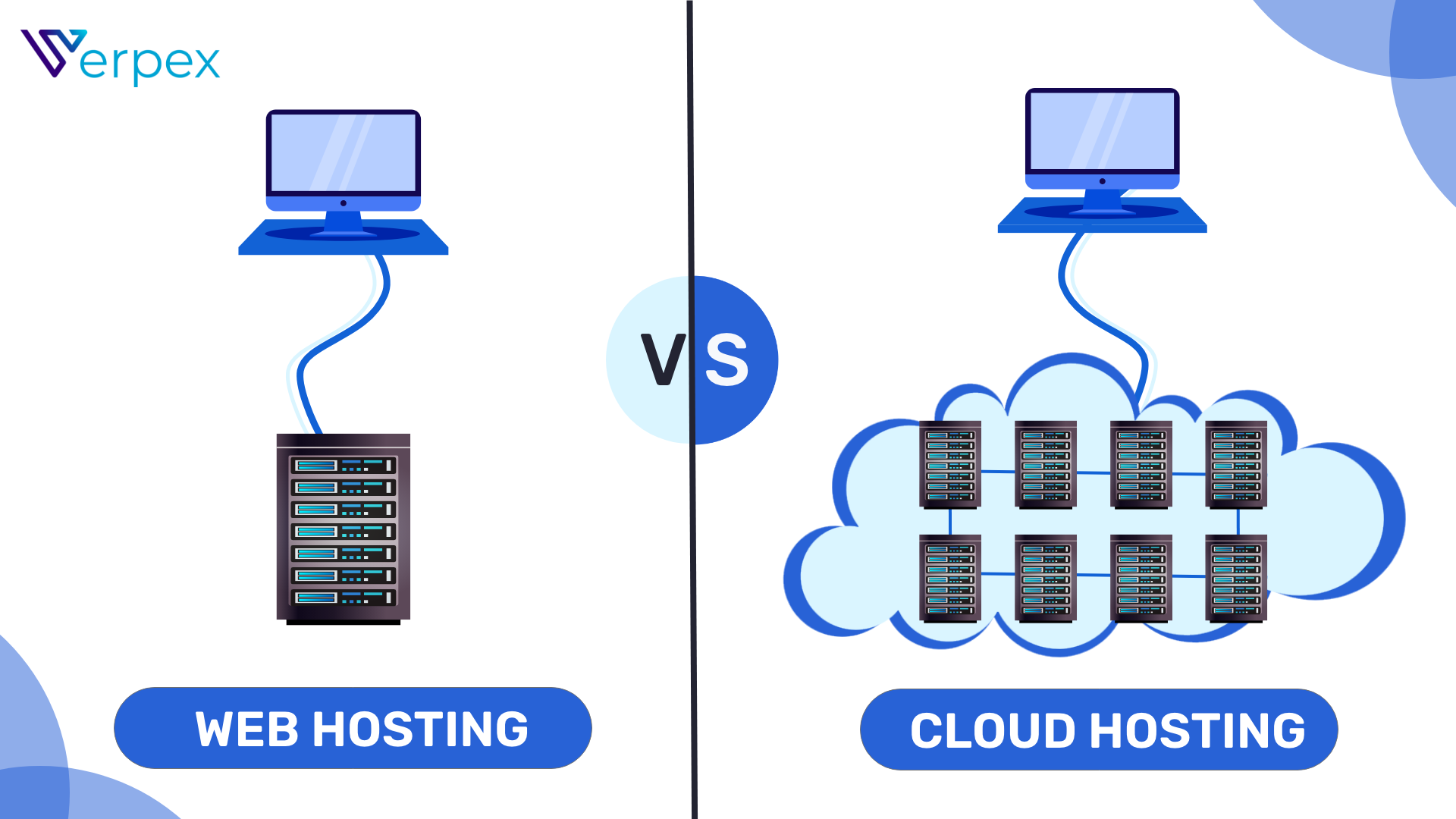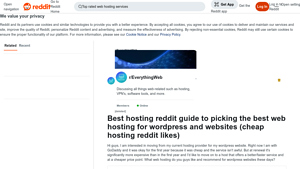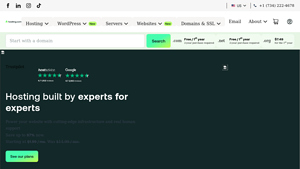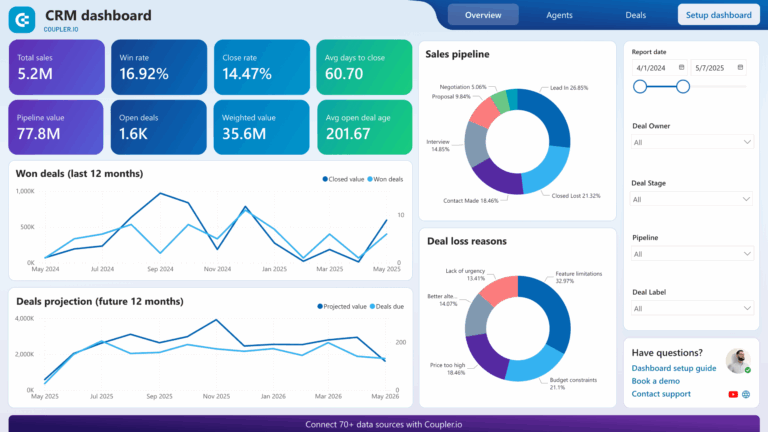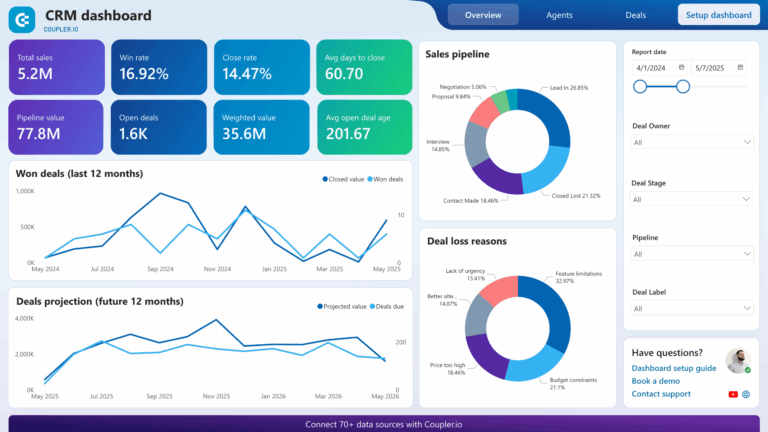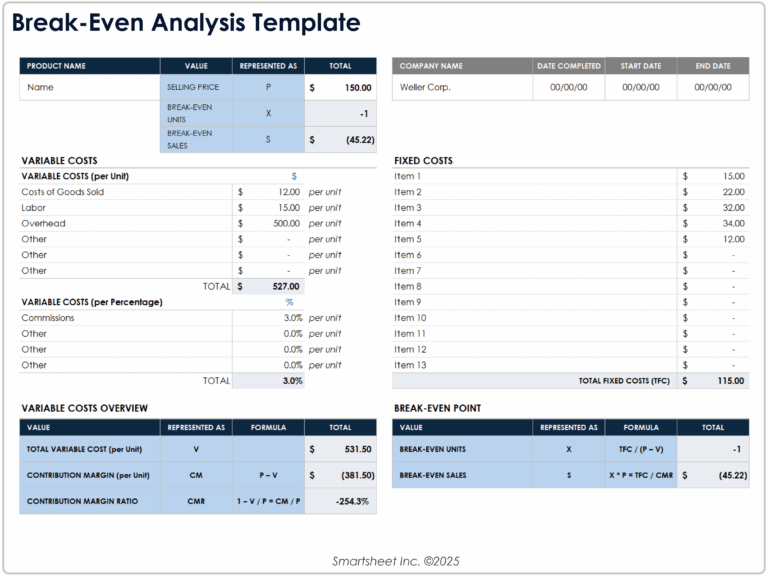Choosing a Best Web Site Hosting Provider: Our Top Picks for 2025
Choosing Your Digital Home: An Introduction to Web Hosting
Choosing the right web hosting is a critical foundation for any successful website. Whether you’re a small business owner looking to establish an online presence, a blogger eager to share your thoughts, or a developer ready to launch your next project, the hosting service you select can significantly impact your website’s performance, security, and overall user experience.
With a myriad of options available, it’s easy to feel overwhelmed by the choices. From shared hosting to dedicated servers, and from VPS to cloud solutions, each type comes with its own set of features, benefits, and limitations. Furthermore, the terms and pricing structures can be confusing, making it difficult for newcomers to determine what they truly need. This guide aims to simplify this process, providing clarity amid the noise.
The Importance of Choosing Wisely
Your web host is essentially the home of your website on the internet. A reliable host ensures that your site is accessible to visitors 24/7, offering the necessary speed, security, and support. In contrast, a poor choice can lead to slow loading times, frequent downtime, and a lack of customer service when you need help the most. This guide will help you understand the different types of hosting services available and how to evaluate them based on your specific needs.
What This Guide Offers
The goal of this guide is to be a comprehensive resource for anyone looking to understand web hosting. We will cover:
-
Hosting Types: A breakdown of the various hosting options available, including shared, VPS, cloud, and dedicated hosting. You’ll learn the pros and cons of each to make an informed decision based on your website’s requirements.
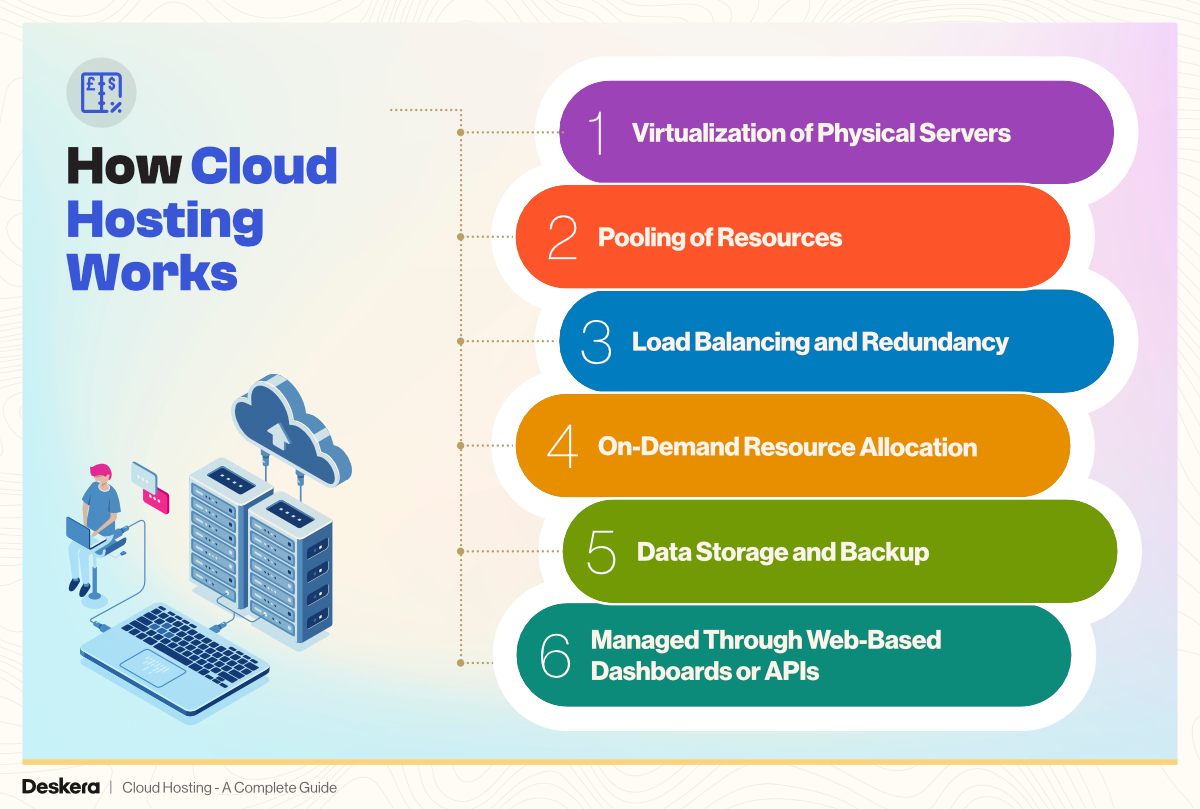
-
Comparative Reviews: A detailed analysis of top web hosting providers, helping you compare their features, pricing, and performance. We’ll highlight the strengths and weaknesses of each option, ensuring you choose a provider that aligns with your goals.
-
Informed Decision Making: Practical tips and advice on what to look for in a web host, including uptime guarantees, security features, customer support, and scalability. This knowledge will empower you to select a hosting solution that not only meets your current needs but also supports your future growth.
By the end of this guide, you’ll have a clear understanding of web hosting and the confidence to make an informed choice that lays a solid foundation for your online endeavors.
The Best Best Web Site Hosting Providers of 2025
5. Bluehost – Top Choice for Reliability and Support!
The “Best Hosting Reddit Guide” serves as a valuable resource for individuals seeking optimal web hosting solutions, particularly for WordPress and various other website types. It highlights reputable providers such as A2 Hosting, Bluehost, SiteGround, and GreenGeeks, known for their performance, reliability, and user-friendly features. This guide is especially useful for beginners and budget-conscious users looking for quality hosting options without compromising on service.
- Website: reddit.com
- Company Age: Approx. 20 years (domain registered in 2005)
20x Speed Boost: Hosting.com Delivers Unmatched Performance!
Hosting.com offers top-tier web hosting services designed for speed and reliability, boasting performance enhancements of up to 20x. Targeting businesses and developers seeking robust solutions, it features premium hardware, 24/7/365 global support, and a risk-free money-back guarantee. Whether you need shared, VPS, or dedicated hosting, Hosting.com ensures your website operates seamlessly while providing excellent customer service and support.
- Website: hosting.com
- Company Age: Approx. 29 years (domain registered in 1996)
5. Bluehost – Top Choice for Reliability and Support
CNET’s review of the best web hosting services for 2025 highlights SiteGround as the top choice, particularly for WordPress users. It offers a user-friendly interface and advanced tools suitable for both beginners and experienced developers. The service is renowned for its strong security measures and reliable performance, making it an ideal option for those seeking a comprehensive hosting solution that balances ease of use with robust features.
- Website: cnet.com
- Company Age: Approx. 31 years (domain registered in 1994)
5. Hostinger – Speed and Security at Your Fingertips!
Hostinger stands out as a top choice for web hosting, particularly for those seeking a fast and secure platform at an affordable price. With its impressive performance metrics, especially for WordPress hosting, Hostinger offers reliable uptime and rapid loading speeds. Its user-friendly interface and budget-friendly plans make it an excellent option for beginners and small businesses looking to establish a strong online presence without breaking the bank.
- Website: hostinger.com
- Company Age: Approx. 23 years (domain registered in 2002)
7 Reasons Why Bluehost is Your Go-To for Reliable Web Hosting!
Bluehost is a popular web hosting provider known for its affordable plans and robust features, making it an excellent choice for individuals and small businesses looking to establish a strong online presence. With a focus on WordPress hosting, it offers easy setup, reliable performance, and a range of domain services. Trusted by millions of websites globally, Bluehost combines user-friendly tools with strong customer support to help users unlock their website’s full potential.
- Website: bluehost.com
- Company Age: Approx. 23 years (domain registered in 2002)
What is Web Hosting? A Plain English Guide
Web hosting is a crucial service that allows individuals and businesses to make their websites accessible on the internet. To better understand web hosting, think of it like renting a space to live. Just as you need a physical location to set up your home, a website needs a virtual space on a server to exist and be viewed by others online.
What is Web Hosting?
When you create a website, all the files, images, and data that make up your site need to be stored somewhere. This is where web hosting comes into play. Web hosting services provide the infrastructure, technology, and resources needed for your website to be stored on a server, which is essentially a powerful computer that runs all the time to ensure your site is available to visitors 24/7.
Just like a landlord provides you with a place to live, a web hosting company provides the space for your website. Depending on your needs, you can choose different types of hosting plans, just as you might choose between a small apartment or a larger house.
What is a Server?
A server is a specialized computer designed to store, process, and deliver web pages to users across the internet. Think of it as the foundation of your website’s home. When someone types in your website address (URL) into their browser, that request travels across the internet to your server, which then sends the requested web page back to the user’s browser.
Servers come in various types, each catering to different needs:
-
Shared Hosting: This is like renting a room in a shared house. You share the server’s resources with many other websites, which makes it more affordable but can also affect performance, especially during peak traffic times.

-
Virtual Private Server (VPS) Hosting: Imagine having your own apartment in a larger building. With VPS hosting, you still share the physical server with others, but you have dedicated resources, leading to better performance and stability.
-
Dedicated Hosting: This is like owning your own house. You have an entire server dedicated to your website, giving you complete control, enhanced performance, and the highest level of security. However, it comes at a higher price.
-
Cloud Hosting: Think of this as living in a community with multiple houses. Your website is hosted on a network of servers, allowing for scalability and reliability. If one server goes down, your website can still operate using another server in the network.
How Do Domains and Hosting Connect?
A domain name is your website’s address on the internet, similar to how your home address tells people where to find you. For example, “www.yourbusiness.com” is a domain name that points to the specific location of your website. However, just having a domain name is not enough; you need web hosting to store the actual content of your site.
When someone types your domain name into their browser, the browser looks up the corresponding IP address, which is like a phone number for your website. This IP address directs the request to the server where your website is hosted. The server then retrieves the necessary files and sends them back to the user’s browser, allowing them to view your website.
To summarize, think of your domain name as the sign outside your house, while the web hosting is the actual structure where you live. Without both, visitors won’t be able to find or access your website.
Why Do I Need a Hosting Service?
If you want to have a website, you need a hosting service for several reasons:
-
Accessibility: Hosting services ensure your website is accessible to users 24/7. Without hosting, your website would only exist on your local computer and wouldn’t be available to anyone else.
-
Storage: Web hosting provides the necessary storage space for your website’s files, images, and databases. This is crucial for keeping your content organized and accessible.
-
Security: A reliable hosting provider offers security measures such as firewalls, SSL certificates, and regular backups to protect your site from attacks and data loss.
-
Support: Many hosting companies provide customer support to help you resolve technical issues, manage your server, and optimize your website’s performance.
-
Scalability: As your website grows, your hosting service can accommodate increased traffic and storage needs, allowing you to upgrade your plan as necessary.
In conclusion, web hosting is an essential service that enables your website to function and be accessible on the internet. Whether you’re starting a blog, running an online store, or managing a business website, choosing the right hosting provider is key to your website’s success.
Types of Web Hosting: A Detailed Comparison
| Hosting Type | Best For | Performance | Price Range | Key Pro | Key Con |
|---|---|---|---|---|---|
| Shared Hosting | Beginners, Personal Blogs | Basic, may slow with traffic | $2 – $10/month | Affordable, easy to set up | Limited resources, shared server risks |
| VPS Hosting | Growing websites, Developers | Enhanced, stable | $20 – $100/month | Greater control and resources | More expensive than shared hosting |
| Dedicated Server Hosting | High-traffic sites, Businesses | High, consistent | $80 – $500+/month | Full server resources and customization | High cost, requires technical knowledge |
| Cloud Hosting | Scalability, E-commerce sites | High, scalable | $10 – $500+/month | Flexible resources, pay for what you use | Can be complex to manage |
| Managed WordPress Hosting | WordPress users, Bloggers | Optimized for WordPress | $15 – $50/month | Hassle-free management, enhanced support | Higher cost than standard hosting |
Shared Hosting
Shared hosting is the most common and cost-effective type of web hosting, where multiple websites share a single server’s resources. This type of hosting is ideal for beginners, personal blogs, and small websites that do not expect high traffic.
Who Should Use It?
Shared hosting is perfect for individuals or small businesses just starting out. If you are launching a personal blog, portfolio, or a small business website, shared hosting provides an economical option to get online without much technical know-how.
Pros:
– Affordability: Shared hosting plans are typically the cheapest, making it easy for anyone to start a website.
– Ease of Use: Most providers offer user-friendly interfaces and one-click installations for popular platforms like WordPress.
– Maintenance: The hosting company manages server maintenance, security, and software updates.
Cons:
– Limited Resources: Since resources are shared, high traffic to one site can slow down others on the same server.
– Less Control: Users have limited access to server settings and configurations.
– Security Risks: Hosting multiple sites on the same server can expose your site to security vulnerabilities if another site is compromised.
VPS Hosting
Virtual Private Server (VPS) hosting is a step up from shared hosting, providing a virtualized server environment. Each VPS runs its own operating system and is allocated a specific amount of resources, making it more reliable and faster than shared hosting.
Who Should Use It?
VPS hosting is suitable for growing websites, developers, and businesses that need more control and resources than shared hosting can offer. It’s ideal for websites with moderate to high traffic and those requiring specific software configurations.
Pros:
– Greater Control: Users have root access to their virtual server, allowing for customization and installation of specific software.
– Enhanced Performance: Dedicated resources lead to better performance, ensuring your site runs smoothly even during traffic spikes.
– Improved Security: VPS hosting provides better isolation from other users, reducing security risks.
Cons:
– Higher Cost: VPS hosting is more expensive than shared hosting, which may not be ideal for budget-conscious users.
– Technical Knowledge Required: Users need some technical expertise to manage and configure their VPS effectively.
Dedicated Server Hosting
Dedicated server hosting provides an entire server exclusively for one user or organization. This type of hosting is ideal for high-traffic websites and businesses that require maximum performance, security, and control.
Who Should Use It?
Dedicated hosting is best suited for large businesses, e-commerce sites, or any website that experiences significant traffic and needs high performance and security. It’s also a good option for users running resource-intensive applications.
Pros:
– Full Control: Users have complete control over the server settings, software, and security protocols.
– High Performance: Dedicated resources ensure optimal performance, even during peak traffic times.
– Enhanced Security: With no other websites on the server, there is a lower risk of security breaches.
Cons:
– High Cost: Dedicated hosting is significantly more expensive than other hosting types, which may not be feasible for small businesses or personal websites.
– Management Complexity: Requires technical knowledge to manage the server effectively, or the need to hire an IT professional.
Cloud Hosting
Cloud hosting utilizes a network of virtual servers in the cloud to host websites, allowing for scalable resources and flexibility. This hosting type is ideal for businesses that experience fluctuating traffic.
Who Should Use It?
Cloud hosting is perfect for businesses that need scalability, such as e-commerce sites or applications that may experience traffic spikes. It is also suitable for developers looking to deploy applications without worrying about server limitations.
Pros:
– Scalability: Resources can be scaled up or down based on demand, making it ideal for fluctuating traffic.
– Pay-as-you-go Pricing: Users pay only for the resources they use, making it cost-effective for growing businesses.
– High Availability: Cloud hosting typically provides high uptime due to redundancy across multiple servers.
Cons:
– Complex Management: Managing cloud infrastructure can be complex and may require technical knowledge.
– Variable Costs: While pay-as-you-go can save money, unexpected spikes in traffic can lead to higher costs.
Managed WordPress Hosting
Managed WordPress hosting is a specialized hosting service designed specifically for WordPress websites. It includes features like automatic updates, backups, and enhanced security measures tailored for WordPress.
Who Should Use It?
This type of hosting is ideal for bloggers, businesses, and anyone who wants to run a WordPress site without the hassle of managing technical aspects. If you want to focus on content creation rather than server management, managed WordPress hosting is a great choice.
Pros:
– Optimized Performance: Servers are optimized for WordPress, ensuring fast load times and better performance.
– Automatic Updates: Managed hosting providers handle WordPress updates, keeping your site secure and up-to-date.
– Enhanced Support: Many providers offer expert support specifically for WordPress issues.
Cons:
– Higher Cost: Managed WordPress hosting is generally more expensive than standard shared hosting.
– Limited Flexibility: Some managed hosting providers restrict certain plugins or customizations to maintain performance and security.
In conclusion, selecting the right type of web hosting depends on your specific needs, budget, and technical expertise. By understanding the differences between shared hosting, VPS hosting, dedicated server hosting, cloud hosting, and managed WordPress hosting, you can make an informed decision that aligns with your goals for your website.
How to Choose a Hosting Provider: A 5-Point Buyer’s Guide
Performance and Uptime
When selecting a web hosting provider, performance and uptime are critical factors to consider. Your website’s speed and availability directly affect user experience, search engine rankings, and ultimately, your business’s success.
Why Performance Matters
Websites that load slowly can deter visitors, leading to high bounce rates. Ideally, your site should load in under three seconds. In a world where users expect instant gratification, slow load times can lead to lost revenue and diminished user trust.
What to Look For
-
Uptime Guarantee: Most reputable hosting providers offer an uptime guarantee, typically around 99.9%. This means your website will be down for no more than nine hours a year. Some providers even promise 99.99% uptime, translating to less than an hour of downtime annually. Read reviews and case studies to verify these claims.
-
Server Performance: Look for hosts that utilize high-performance hardware, including SSD (Solid State Drives) for faster data access. Additionally, consider whether they offer Content Delivery Networks (CDN), which can enhance load times for users across different geographical locations.
-
Speed Optimization Tools: Some providers offer built-in tools to help optimize your site’s speed. Look for features like caching, image optimization, and free CDN services that can significantly improve loading times.
Customer Support
Reliable customer support is essential, especially for small business owners and individuals who may not have extensive technical knowledge. When issues arise, you want to be able to resolve them quickly and efficiently.
Why Customer Support Matters
When your website experiences downtime or other technical issues, having access to responsive customer support can minimize disruptions. The quicker you can resolve a problem, the less impact it will have on your business.
What to Look For
-
Support Channels: Ensure the hosting provider offers multiple support channels, such as live chat, email, and phone support. Some hosts also provide support via social media, which can be a convenient option.
-
Availability: Check if the support team is available 24/7. This is particularly important for businesses that operate outside standard business hours.
-
Knowledge Base and Resources: A comprehensive support center with FAQs, tutorials, and troubleshooting guides can empower you to solve issues independently. Look for hosts that provide extensive documentation and community forums.
Pricing and Renewal Rates
Understanding the pricing structure of a web hosting provider is crucial for managing your budget effectively. While introductory offers may seem appealing, it’s essential to consider the long-term costs.
Why Pricing Matters
Many hosting companies lure customers with low initial prices, only to increase rates significantly upon renewal. As a small business owner or individual, budgeting for hosting is vital to avoid unexpected costs down the line.
What to Look For
-
Introductory Pricing: Look for clear information on introductory rates and how long they last. Make sure you understand when and how much the renewal rates will increase.
-
Contract Length: Some hosts offer the best rates on longer contracts (e.g., four years), while others may have flexible month-to-month pricing. Choose a contract length that aligns with your plans and comfort level.
-
Hidden Fees: Be aware of any additional costs that may not be immediately apparent, such as fees for SSL certificates, backups, or migration services. Read the fine print to avoid surprises.
Security Features (SSL, Backups)
Security is a paramount concern for any website. With increasing cyber threats, ensuring that your website is secure should be a top priority.
Why Security Matters
A secure website protects your data and that of your visitors, helping to build trust and credibility. Additionally, search engines favor secure sites (those using HTTPS), which can improve your rankings.
What to Look For
-
SSL Certificates: An SSL certificate encrypts data transmitted between your website and its visitors, safeguarding sensitive information. Many hosts now offer free SSL certificates, which should be a standard feature.
-
Backup Solutions: Regular backups are essential for data recovery in case of a breach or accidental deletion. Look for hosting providers that offer automated backups, ideally on a daily basis.
-
Security Protocols: Inquire about the security measures the host has in place, such as firewalls, DDoS protection, malware scanning, and brute-force attack prevention. A robust security framework can help mitigate risks significantly.
Scalability and Future Growth
As your website grows, your hosting needs may change. Choosing a hosting provider that can scale with your business is crucial for long-term success.
Why Scalability Matters
A hosting provider that offers scalability allows you to upgrade your plan or resources as your website traffic and data storage needs increase. This flexibility ensures that you won’t have to migrate to a different host as your business expands.
What to Look For
-
Hosting Options: Look for providers that offer a range of hosting types, such as shared, VPS, dedicated, and cloud hosting. This variety allows you to transition smoothly as your needs evolve.
-
Resource Limits: Check the limitations on storage, bandwidth, and the number of websites you can host. Choose a plan that allows room for growth without incurring exorbitant costs.
-
Upgrade Path: Understand the process for upgrading your hosting plan. A straightforward upgrade path can save you time and hassle as your business needs change.
In conclusion, choosing the right hosting provider involves careful consideration of various factors, including performance, customer support, pricing, security, and scalability. By taking the time to evaluate these elements, you can select a hosting service that not only meets your current needs but also supports your future growth. Make informed decisions to ensure a reliable and efficient online presence for your business or personal projects.
Key Hosting Terms and Jargon Explained
cPanel
Definition:
cPanel is a web-based control panel that simplifies the management of web hosting accounts. It provides a graphical interface and automation tools designed to make it easy for users to manage their websites, emails, databases, and other hosting features without needing extensive technical knowledge.
Key Features:
– File Management: Users can upload, download, and manage files through a file manager interface.
– Email Management: cPanel allows users to create and manage email accounts associated with their domain.
– Database Management: Users can create, modify, and manage databases using tools like phpMyAdmin.
– Software Installation: Many web applications, such as WordPress, can be installed quickly through cPanel’s one-click installers.
SSL Certificate
Definition:
An SSL (Secure Socket Layer) certificate is a digital certificate that authenticates the identity of a website and encrypts information sent to the server using SSL technology. This is crucial for protecting sensitive data, such as credit card numbers and personal information, during online transactions.
Key Features:
– Encryption: SSL certificates encrypt data between the web server and the user’s browser, making it difficult for hackers to intercept.
– Trust Indicators: Websites with SSL certificates display a padlock icon in the address bar, indicating a secure connection to users.
– SEO Benefits: Google considers SSL a ranking factor, meaning having an SSL certificate can improve your site’s visibility in search results.
Bandwidth and Data Transfer
Definition:
Bandwidth refers to the maximum amount of data that can be transmitted over an internet connection in a given amount of time, typically measured in megabits per second (Mbps). Data transfer, on the other hand, is the total amount of data sent and received by your website over a specific period, usually calculated monthly.
Key Features:
– Monthly Limits: Many hosting providers impose limits on the amount of data transfer allowed each month. Exceeding these limits may incur additional charges or result in throttled speeds.
– Visitor Capacity: Bandwidth determines how many visitors your site can handle at once. Higher bandwidth means more visitors can access your site without performance issues.
– Dynamic vs. Static Content: Dynamic content (like database-driven pages) may require more bandwidth than static content (like HTML pages), so understanding your site’s needs is essential.
Storage (SSD vs. HDD)
Definition:
Storage refers to the space available on a web server to store your website’s files, including images, videos, scripts, and databases. There are two primary types of storage used in web hosting: SSD (Solid State Drive) and HDD (Hard Disk Drive).
Key Features:
– SSD (Solid State Drive): SSDs use flash memory to provide faster data access speeds and improved performance. They are more reliable and consume less power than HDDs, making them ideal for high-traffic websites.
– HDD (Hard Disk Drive): HDDs use spinning disks to read and write data, making them slower than SSDs. They typically offer more storage capacity for the price but are less efficient for performance-heavy applications.
– Impact on Site Speed: The type of storage you choose can significantly affect your website’s loading times and overall performance.
Domain Name System (DNS)
Definition:
The Domain Name System (DNS) is a hierarchical system that translates human-friendly domain names (like www.example.com) into IP addresses (like 192.0.2.1) that computers use to identify each other on the network.
Key Features:
– Name Resolution: When a user types a domain name into their browser, DNS servers resolve this name into an IP address, directing the browser to the correct website.
– DNS Records: DNS includes various types of records, such as A records (for mapping domain names to IP addresses), CNAME records (for aliasing one domain to another), and MX records (for directing email traffic).
– Propagation Time: Changes made to DNS records can take time to propagate throughout the internet, which may affect website accessibility temporarily.
Uptime
Definition:
Uptime refers to the amount of time a website is operational and accessible to users. It is typically expressed as a percentage, with 100% uptime indicating that a site is always available without downtime.
Key Features:
– Uptime Guarantees: Most web hosting providers offer uptime guarantees, often around 99.9%. This means that the website may experience a maximum of approximately 8.76 hours of downtime per year.
– Impact on SEO and User Experience: High uptime is crucial for maintaining a good user experience and search engine rankings. Frequent downtimes can lead to lost visitors and revenue.
– Monitoring Tools: Many hosting services provide monitoring tools that allow website owners to track uptime and receive alerts in case of outages.
By understanding these key hosting terms, small business owners, bloggers, developers, and individuals can make more informed decisions when selecting a web hosting service that meets their needs.
Frequently Asked Questions (FAQs)
1. Can I host my own website?
Yes, you can host your own website by setting up a server on your own hardware, such as a computer or a dedicated server. However, this requires technical knowledge, ongoing maintenance, and a stable internet connection. For most small business owners and individuals, using a web hosting service is more practical as it provides the necessary infrastructure, security, and support.
2. How much should I pay for hosting?
The cost of web hosting can vary widely based on the type of hosting service you choose. Shared hosting typically starts at around $5 per month, while VPS hosting can range from $20 to $100 per month. Dedicated hosting services often begin at $100 per month and can exceed $500 for high-performance plans. It’s important to consider not just the initial price but also renewal rates, as many services offer discounted introductory rates.
3. What’s the difference between a domain and hosting?
A domain name is the address people use to access your website (e.g., www.yourwebsite.com), while web hosting is the service that stores your website’s files and makes them accessible on the internet. In essence, the domain is your website’s name, and hosting is the space where your website lives.
4. What types of web hosting are available?
There are several types of web hosting available, including:
– Shared Hosting: Multiple websites share the same server resources, making it cost-effective but potentially slower.
– VPS Hosting: A virtual private server offers more resources and flexibility than shared hosting, ideal for growing websites.
– Cloud Hosting: Uses a network of servers to provide scalable resources, which can handle traffic spikes effectively.
– Dedicated Hosting: You have an entire server dedicated to your website, providing maximum performance and control.
– Managed WordPress Hosting: Specifically optimized for WordPress sites, offering features like automatic updates and backups.
5. How do I choose the right web hosting provider?
When selecting a web hosting provider, consider the following factors:
– Performance: Look for uptime guarantees (99.9% is standard) and fast loading speeds.
– Support: Ensure they offer reliable customer support through various channels like live chat, email, or phone.
– Security: Check for essential security features such as SSL certificates, firewalls, and daily backups.
– Scalability: Choose a provider that can accommodate your website’s growth without significant interruptions.
– Pricing: Compare pricing plans, including renewal rates, and watch for hidden fees.
6. What is uptime, and why is it important?
Uptime refers to the percentage of time your website is operational and accessible to users. A high uptime percentage (99.9% or higher) is crucial because it means your website is reliable and minimizes downtime, which can lead to lost traffic and revenue. Most reputable hosting providers offer uptime guarantees to reassure customers of their service reliability.
7. Can I switch web hosting providers later?
Yes, you can switch web hosting providers at any time. However, the process may involve transferring files, databases, and domain names, which can be complex. It’s essential to plan the migration carefully to minimize downtime and ensure a smooth transition. Most reputable hosts offer migration assistance or tools to help you with the process.
8. What features should I look for in a web hosting plan?
When evaluating web hosting plans, look for features such as:
– Storage and Bandwidth: Ensure you have enough resources for your website’s needs.
– Security Features: Look for SSL certification, firewalls, and backup solutions.
– Ease of Use: A user-friendly control panel can simplify site management.
– Customer Support: Access to knowledgeable support via multiple channels is crucial.
– Scalability Options: Choose a plan that allows you to upgrade as your website grows.
Conclusion: Making Your Final Decision
Understanding Your Unique Needs
Choosing the right web hosting service is ultimately about finding the best fit for your specific needs. There is no one-size-fits-all solution; what works for a small business may not be ideal for a personal blog or a developer’s portfolio. Consider your budget, the expected traffic to your website, and your level of technical skill. If you’re just starting and have limited funds, shared hosting options like Hostinger or AccuWeb Hosting can provide an excellent entry point. For those anticipating higher traffic or requiring more robust performance, VPS or cloud hosting solutions might be worth the investment.
Key Factors to Evaluate
As you weigh your options, several critical factors should guide your decision-making process:
-
Customer Support: Reliable customer support is essential, especially if you encounter technical difficulties. Look for hosts that offer multiple support channels like live chat, email, and phone support. Providers like Ionos and SiteGround are noted for their exceptional customer service.
-
Uptime Guarantees: A high uptime percentage—ideally 99.9% or better—is crucial for ensuring your website remains accessible to visitors. Downtime can lead to lost revenue and diminished trust from your audience.
-
Scalability: Consider how easy it is to upgrade your hosting plan as your website grows. Hosts that offer scalable solutions will allow you to transition smoothly from shared to VPS or dedicated hosting without significant downtime or hassle.
Take the Leap with Confidence
Now that you’re equipped with the knowledge to make an informed decision, it’s time to take the next step. Whether you’re launching a blog, an online store, or a portfolio site, the right web host can make all the difference in your project’s success. Evaluate your options, weigh the pros and cons, and choose a hosting service that aligns with your goals. With the right foundation, you can start your online journey with confidence and focus on what truly matters—creating great content and engaging with your audience. Happy hosting!
Important Disclaimer
⚠️ Important Disclaimer
The information and reviews in this guide are for educational purposes, based on publicly available data and our own analysis. We are not affiliated with any hosting providers mentioned. Features, pricing, and performance change frequently. Always conduct your own research and check the provider’s official website before making a purchase.
